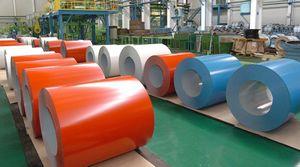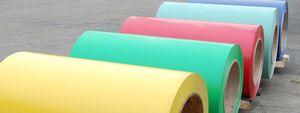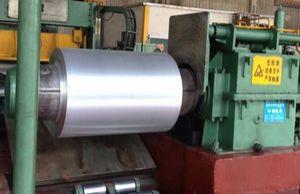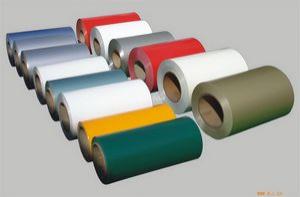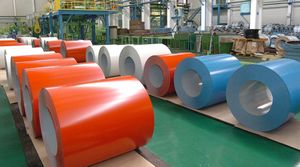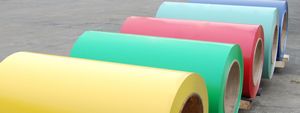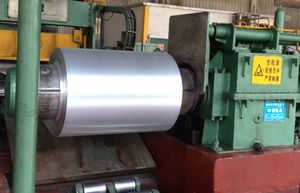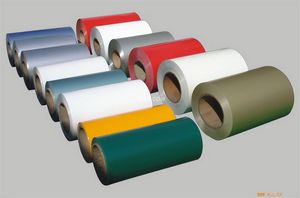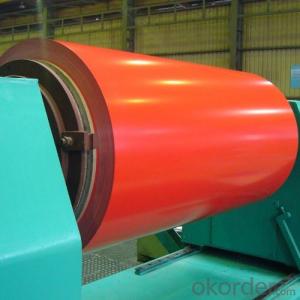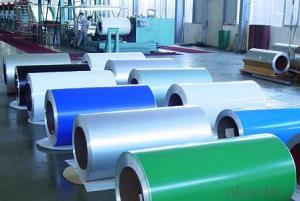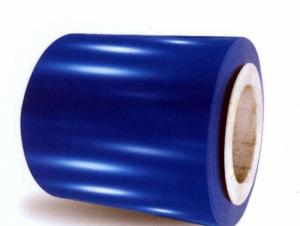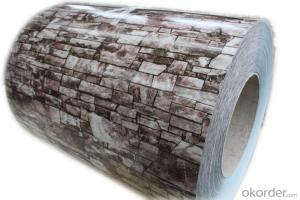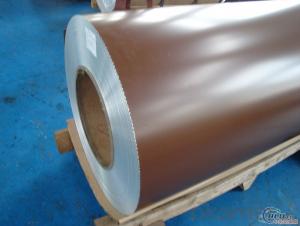PVDF Painted AA 3003 Coated Aluminum Coil
- Loading Port:
- China Main Port
- Payment Terms:
- TT OR LC
- Min Order Qty:
- -
- Supply Capability:
- -
OKorder Service Pledge
Quality Product, Order Online Tracking, Timely Delivery
OKorder Financial Service
Credit Rating, Credit Services, Credit Purchasing
You Might Also Like
supply Mill-finished / coated aluminum plate/sheet/ coil:
Alloy: AA1050,1060,1100,1200,2024,3003,3304,3005,3015,5052,5086,5754,5083,6061,7050,7475,8011, etc
Temper: O, H14/16/18/22/24/32/ H112/H321/T6,T851,T7451,T7351, etc
Thickness: 0.02mm—20mm
Width: 100mm—2000mm (Can be slitted)
Notice: PE coating / PVDF coating / Embossment can be done if required.
Alloy: AA1050,1060,1100,1200,2024,3003,3304,3005,3015,5052,5086,5754,5083,6061,7050,7475,8011, etc
Temper: O, H14/16/18/22/24/32/ H112/H321/T6,T851,T7451,T7351, etc
Thickness: 0.02mm—20mm
Width: 100mm—2000mm (Can be slitted)
Notice: PE coating / PVDF coating / Embossment can be done if required.
- Q: This question seeks to understand the environmental impact of discarded aluminum coils.
- <p>Discarded aluminum coils can have significant environmental impacts. They contribute to landfill waste and can potentially leach harmful substances into the soil and water if not properly managed. Aluminum production is energy-intensive, so recycling discarded coils reduces the demand for raw materials and conserves energy. However, if left in the environment, aluminum can also contribute to pollution and disrupt ecosystems. Proper recycling and disposal methods are crucial to mitigate these effects and promote sustainability.</p>
- Q: Can aluminum coils be used in the production of aluminum composite ceilings?
- Aluminum composite ceilings can indeed incorporate aluminum coils. The utilization of aluminum coils as the foundational material for manufacturing aluminum composite panels is quite common. These panels, in turn, serve as the foundation for constructing ceilings. The coils themselves typically consist of high-quality aluminum alloy and have undergone numerous processes to guarantee their durability, strength, and visual appeal. For added protection, the aluminum coils are coated with a layer of either PVDF or polyester. This coating serves to enhance their resistance to weathering, UV rays, and corrosion. Additionally, this protective layer allows for a wide array of color options, thus providing ample flexibility in design choices for aluminum composite ceilings. In summary, aluminum coils play a vital role in the production of aluminum composite ceilings. They offer a lightweight, fire-resistant, and long-lasting solution for a variety of architectural and interior design applications.
- Q: Are aluminum coils suitable for lightweight applications?
- Yes, aluminum coils are suitable for lightweight applications. Aluminum is known for its low density and high strength-to-weight ratio, making it an ideal choice for lightweight applications where weight reduction is crucial, such as in the automotive, aerospace, and packaging industries.
- Q: What is the role of aluminum coils in the construction of power plants?
- Aluminum coils play a crucial role in the construction of power plants, especially in the cooling systems. The main purpose of these coils is to facilitate heat transfer and maintain efficient cooling within the power plant. Power plants generate a significant amount of heat during the process of converting fuel or other energy sources into electricity. To prevent overheating and ensure optimal performance, cooling systems are installed to dissipate this excess heat. Aluminum coils are a key component of these cooling systems. The aluminum coils are typically used in the construction of air-cooled condensers and evaporators, which are integral parts of the cooling systems. These coils allow for the transfer of heat from the plant's equipment to the surrounding air. They are designed to efficiently transfer and dissipate heat by utilizing the high thermal conductivity of aluminum. The use of aluminum coils offers several advantages in power plant construction. Firstly, aluminum is a lightweight material, making it easier to handle and install in large-scale power plants. This helps reduce construction time and costs. Additionally, aluminum is highly resistant to corrosion, ensuring the longevity and durability of the coils even in harsh operating conditions. Furthermore, aluminum coils provide excellent heat transfer capabilities. They have a high thermal conductivity, meaning they can efficiently transfer heat from the power plant equipment to the cooling medium, typically air. This allows the power plant to maintain stable operating temperatures and prevent any equipment failures or performance issues caused by excessive heat buildup. Overall, aluminum coils are essential components in power plant construction, primarily in the cooling systems. They enable efficient heat transfer, promote optimal cooling, and contribute to the overall performance and reliability of the power plant.
- Q: Are aluminum coils suitable for solar panel frames?
- Yes, aluminum coils are suitable for solar panel frames. Aluminum is lightweight, corrosion-resistant, and has excellent thermal conductivity, making it an ideal material for solar panel frames. It offers durability, easy installation, and efficient heat dissipation, ensuring the longevity and optimal performance of solar panels.
- Q: Can aluminum coils be used for radiation shielding?
- Yes, aluminum coils can be used for radiation shielding. Aluminum is often used as a shielding material due to its high atomic number and excellent attenuation properties, which effectively block and absorb radiation. It is commonly used in various industries, including medical, nuclear, and aerospace, for shielding against different types of radiation such as X-rays and gamma rays.
- Q: How to calculate the weight of strips with the weight of aluminum coil known?
- Thickness*width*length=weight/density, length=weight/(density*thickness*width).Ps: Keep unit the same.
- Q: Can aluminum coils be customized according to specific requirements?
- Yes, aluminum coils can be customized according to specific requirements. Aluminum coils can be tailored to meet specific dimensions, thicknesses, and finishes to suit various applications. Customization options can include specific alloys, tempering processes, and even specialized coatings to enhance corrosion resistance or improve appearance. Additionally, aluminum coils can be fabricated with specific features such as perforations, embossing, or edge treatments to meet specific functional or aesthetic requirements. With the ability to be customized, aluminum coils offer flexibility and versatility for a wide range of industries and applications.
- Q: Can aluminum coils be anodized in different colors?
- Yes, aluminum coils can be anodized in different colors. Anodizing is an electrochemical process that creates a protective oxide layer on the surface of aluminum, and this layer can be dyed to achieve a variety of colors.
- Q: This question asks about the impact of aluminum coils on the quality of welding. It seeks to understand the relationship between the material properties of aluminum coils and the outcomes of the welding process.
- <p>Aluminum coils can significantly affect welding quality due to their unique properties. Aluminum has a high thermal conductivity, which requires more energy to weld, and can lead to rapid heat dissipation, affecting the weld's uniformity. Oxides on the aluminum surface can also interfere with the welding process, causing porosity and poor joint strength if not properly cleaned. Additionally, aluminum's low melting point can lead to distortion and warping if not managed correctly. The use of appropriate filler materials, proper cleaning, and precise control of welding parameters are crucial to achieve high-quality welds with aluminum coils.</p>
Send your message to us
PVDF Painted AA 3003 Coated Aluminum Coil
- Loading Port:
- China Main Port
- Payment Terms:
- TT OR LC
- Min Order Qty:
- -
- Supply Capability:
- -
OKorder Service Pledge
Quality Product, Order Online Tracking, Timely Delivery
OKorder Financial Service
Credit Rating, Credit Services, Credit Purchasing
Similar products
Hot products
Hot Searches
Related keywords
